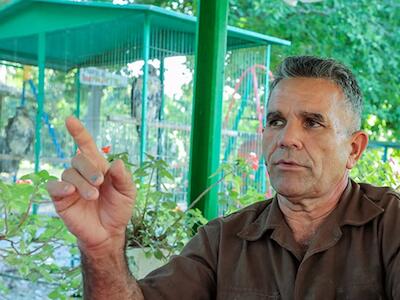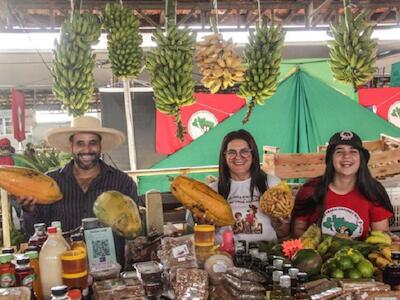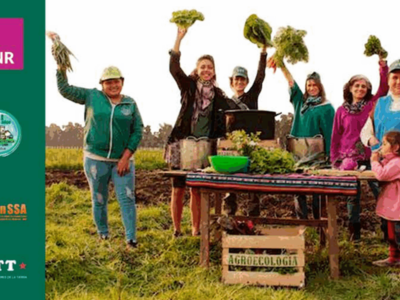PUBLIC STATEMENT ON THE RESOLUTION OF THE MINISTRY OF AGRICULTURE
On Tuesday, 9 April 2024, a resolution of the Ministry of Agriculture on peasant seeds was published in Chile’s Official Gazette. It recognises the existence of traditional seeds, and of people who care for and reproduce them according to their own procedures and who participate in exchanges of seeds and associated knowledge. The resolution also gives the Ministry of Agriculture the task of regulating the amount of seeds that can be exchanged in the future.

After careful analysis of the resolution, ANAMURI is of the opinion that:
1. In the best case scenario, the resolution will have no effect on practices that peasant and indigenous women in particular have maintained and will continue to maintain for generations, and which they defend strongly today because they understand that the existence of these seeds in their hands and under their care is the only real guarantee of being able to continue protecting biodiversity and producing food for all.
2. The resolution, however, contains elements that seriously attack, or allow a serious attack on, peasant and indigenous systems of use, conservation, reproduction and exchange of seeds. For example, we consider it very dangerous that the Ministry of Agriculture assumes the right to regulate the quantities to be exchanged, given that these are and have been determined for generations by those who participate in these exchanges. This contravenes Chile's international commitments, such as the Biodiversity Convention, which the Resolution itself cites in its justification.
3. ANAMURI, together with other peasant organisations of CLOC-Chile and the 28 July Peasant Coordination, were informed in 2023 of the original version of this Resolution. It included the authorisation of forms of peasant and indigenous seed trade. This would have been an important step in the right direction, as it allowed commercialisation to be done according to accessible criteria and requirements, without significant cost and in a manner respectful of biodiversity and traditional forms of trade. At the same time, it would have provided the necessary transparency for those acquiring such seeds. However, the published Resolution eliminates any mention of the right to commercialise seeds under norms in line with peasant and indigenous reality, thus solidifying and strengthening the commercial monopoly that seed companies have today.
4. With this deletion, the Resolution was emptied of its positive potential and the door to possible abuse was opened. One example is the creation of a List of Traditional Seed Keepers. Originally, this list would have made sense, because it would have made it possible to locate savers who could sell traditional seeds, a process that ANAMURI considers necessary to re-generalise the use of traditional seeds in peasant and indigenous agriculture. In the published Resolution, the list of seed guardians plays no useful role and potentially opens the door to greater control and restrictions on seed keepers and the exchange systems that they maintain.
5. Earlier, we submitted critical comments to the Ministry on the initially proposed Resolution. Many of them concerned the text on seed trade, in order to ensure accessible marketing systems for peasant and indigenous agriculture. Another criticism we made was
that there was no mention whatsoever of indigenous peoples' agriculture. None of this was taken into account.
ANAMURI rejects this resolution, as it does not provide the necessary protections and opens the door to further restrictions, aggressions and abuses. For years, the Ministry of Agriculture has been trying to limit our seed exchanges. Also for years, the Chilean Seed Association has said that we can do whatever we want with our seeds, including exchange and sell them, as long as we accept UPOV 91. They radically changed their story, however, and worked to stop the Resolution that we are analysing today from opening the door to peasant and indigenous seed commercialisation. With the text now published in the Official Journal, the Ministry and the seed industry have solidified their power to attack our seed care systems.
ANAMURI will continue to defend without compromise our right to the free use, care, multiplication, sale and exchange of seeds by all people and communities that cultivate the land, and especially by peasant and indigenous women. We will continue to fight against the imposition of UPOV 91 and for the defence of peasant and indigenous agriculture, because it is the only guarantee of making the right to food a reality for everyone.
With conviction and hope, we will turn our dreams into action!
Seeds, a peoples' heritage for food sovereignty!
ANAMURI National Directorate
11 April 2024
Declaración Anamuri en Español en el siguiente enlace Click aquí
Notas relacionadas:

Interián, un guajiro en el parlamento

El Pueblo del Bosque de Niebla

Pauta estagnada: enfrentar a fome, crise ambiental e desigualdades passa pela Reforma Agrária Popular



